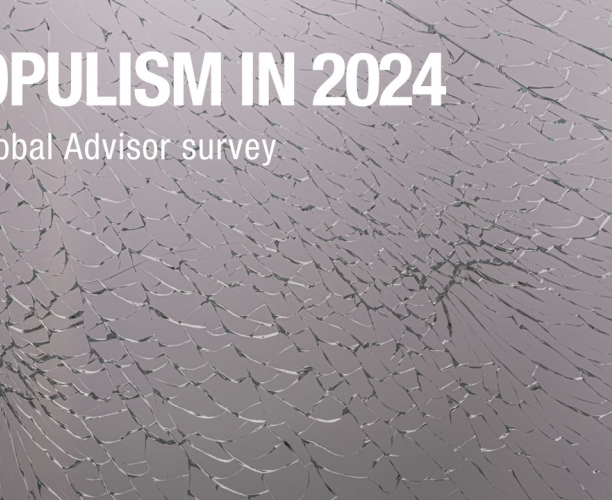

Populism remains strong
Citizens across 28 countries feel that their country is in decline and their country’s society is broken, according to the findings of a new Ipsos poll conducted in late 2023. Anti-elite sentiment is widespread across most of the countries, while anti-immigrant sentiment is more divided. The poll also finds that the desire for strong leaders to “take the country back” is high across many of the 28 countries.
Read the key findingsDownload full report
Key findings
- Anti-establishment views are widespread, reflecting frustrations with inequality, slower growth, and the inability for governments to deliver. In a significant election year, 63% of people on average across 28 countries1 believe their country needs “a strong leader to take the country back from the rich and powerful”.
- Populist sentiment is fuelled by a general sense among respondents that their country is in decline (58%) and that society is broken (57%), even in countries with good GDP growth.
- When jobs are scarce, 59% favour employers prioritizing hiring “people of this country” over immigrants
- Majority (62%) see elites as a closely connected group with similar views on many important issues.
- Most want a stronger, more activist government, even given the anti-establishment fervour: Seventy-five percent support governments increasing their spending on healthcare, and 67% support governments increasing funding toward poverty reduction. Similarly, Ipsos’ Global Trends study finds that 74% fear their government will not provide enough support in the future.
About the study
Ipsos interviewed 20,630 people online in the following countries between November 22 and December 06, 2023. Quotas were set to ensure representativeness and data have been weighted to the known population profile of each country. The sample consists of approximately 1,000 individuals each in Australia, Brazil, Canada, France, Germany, Great Britain, Italy, Japan, Spain, and the U.S., and 500 individuals each in Argentina, Belgium, Chile, Colombia, Hungary, Indonesia, Malaysia, Mexico, the Netherlands, Peru, Poland, Singapore, South Africa, South Korea, Sweden, Thailand, and Turkey. The sample in India consists of approximately 2,200 individuals, of whom approximately 1,800 were interviewed face-to-face and 400 were interviewed online.
Download the full report for a detailed methodology.



